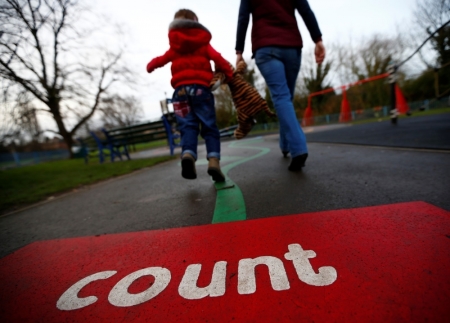Rowan Williams Joins Richard Dawkins in Supporting Religious Selection Cap for Faith-Based Schools

Former Church of England leader Rowan Williams, along with famed atheist and evolutionary biologist Richard Dawkins, are among 70 high-profile figures in the U.K. urging the government to continue to ban faith schools from admitting more than 50 percent of students based on their religion.
Williams, Dawkins, and others, such as Andrew Copson, chief executive of Humanists U.K., jointly spoke out in a letter against a proposal that new faith schools be allowed to go over the 50 percent cap, warning that it could be "deleterious to social cohesion and respect."
"The government rightly identifies the promotion of mutual understanding and tolerance for those of different religions and beliefs as one of the most important roles for schools. As we are all aware, children are blind to the differences and immune to the prejudices that so often divide society," states the letter, uploaded on the Humanists U.K. website on Tuesday.
"The duty of the education system, therefore, should not be to highlight and entrench such differences in the eyes and minds of young people, but to emphasize instead the common values that we all share," it adds.
It warns that removing the 50 percent cap would allow schools to "label children at the start of their lives with certain beliefs and then divide them up on that basis."
The academics and faith leaders who signed the statement pointed to a 2017 poll from the Accord Coalition for Inclusive Education — a group that aims to ensure Christian faith free schools are more ethnically mixed, particularly for children of South Asian heritage — which found that 80 percent of the British public, including 71 percent of Christians overall, were also against proposals to change the cap, when asked to choose which of two statements came closer to their view:
- New state funded faith schools should be allowed to religiously select up to a maximum of 50 percent of pupils on the basis of faith (the status quo option).
- New state funded faith schools should be allowed to select up to 100 percent of their pupils on the basis of faith (the change option).
Some institutions, such as the Roman Catholic Church in the U.K., have argued that the prohibitions on single-faith schools is preventing them from opening free schools.
"We cannot open any free schools if the 50 percent admission cap remains. We have not opened any since 2010 even though there is huge demand for Catholic education in some regions," a spokeswoman for the Catholic Education Service said in July 2017.
The Catholic Church has also said that existing Catholic schools are already the most socially and ethnically diverse schools in the country, currently educating over 300,000 non-Catholics, including 27,000 Muslims.
"All credible evidence, including the government's own analysis, points to the fact that the 50 percent cap hasn't created diversity. This is because minority faith schools are only popular with their respective community," a spokesman added, according to The Telegraph.
"All the cap achieves is that it prevents Catholic parents from having the same choice of schools enjoyed by other parents."
The Church of England's Chief Education Officer Nigel Genders said the cap doesn't affect its work either way, however.
The Office for Standards in Education, Children's Services and Skills has shown that over 500 schools in England are either 100 percent white or ethnic minority.
Free schools, as the BBC explains, "are established as academies, independent of local authorities. Unlike local-authority-run schools, they are exempt from teaching the national curriculum and have increased control over teachers' pay and conditions and the length of school terms and days.
"Free schools are set up by groups of parents, teachers, charities, businesses, universities, trusts, religious or voluntary groups, but funded directly by central government."





















